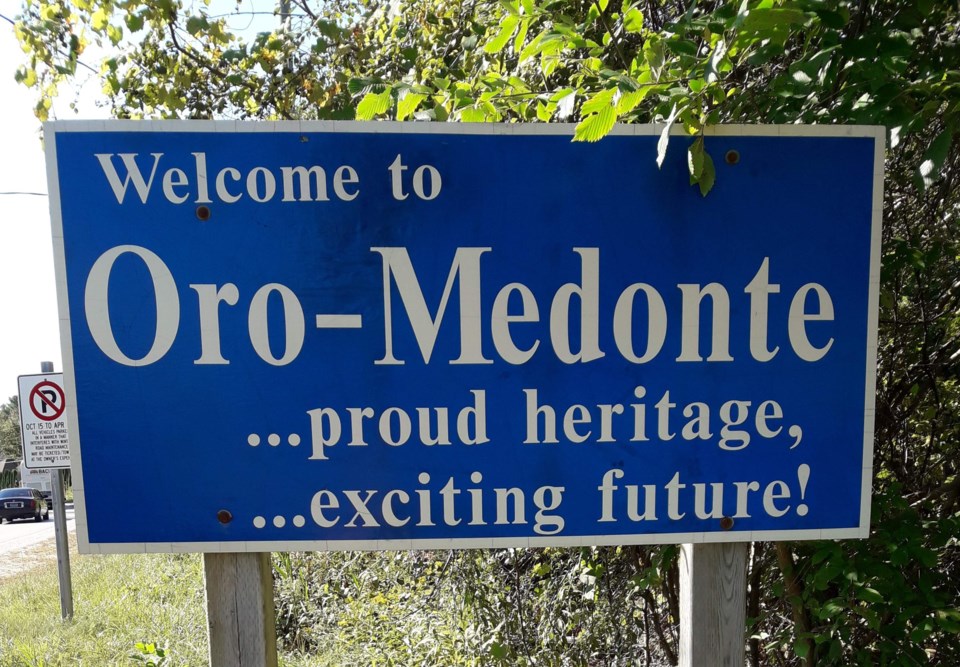OrilliaMatters welcomes letters to the editor at [email protected] or via our website. Please include your daytime phone number and address (for verification of authorship, not publication). The following letter is from Zoe Rowe-Watson, who ran for Oro-Medonte council during the last municipal election.
In order to foster a thriving community, it is imperative that we address various aspects that can contribute to its growth and well-being.
The challenges posed by heavy loaded trucks, excessive speed and inadequate lighting on Horseshoe Valley Road’s side streets demand urgent attention to ensure the safety of motorists, pedestrians and students waiting for their school bus.
By implementing stricter regulations for heavy loaded trucks, enforcing speed limits and improving lighting infrastructure, authorities can significantly mitigate the risks associated with these issues. Road safety is a shared responsibility, and it is crucial for all to work collaboratively to create a safe and secure road environment on Horseshoe Valley Road and its adjoining side streets.
Another key area that requires attention is the availability of rental units, as this directly impacts housing affordability and accessibility for residents. By streamlining the approval process for second suites, we can expedite the creation of additional rental units, ensuring that the needs of our community are met in a timely manner.
Moreover, it is crucial to extend support to our local farmers who play a vital role in sustaining our agricultural sector. By implementing policies that facilitate their operations and provide necessary resources, we can foster an environment conducive to their success. This, in turn, benefits not only our farmers but also the wider community, ensuring a sustainable and locally sourced food supply.
Another area that warrants consideration is the management of short-term rentals (STRs). Rather than wasting valuable time and resources in fighting these rentals, it would be more prudent to establish clear regulations and guidelines that govern their operation. This approach not only promotes a harmonious coexistence between residents and STR owners, but also minimizes unnecessary conflicts and legal disputes.
To promote fairness and equality within our local government, the establishment of a written non-discrimination policy is essential. This policy should include penalties for councillors and staff members found guilty of harassing or discriminating against residents. By setting clear expectations and consequences, we can ensure a respectful and inclusive environment for all.
Transparency in decision-making processes is also paramount. By reducing the number of closed and special meetings, we can foster greater public engagement and trust. Similarly, adopting an open process for appointing committee members ensures that these positions are filled based on merit and suitability rather than favouritism or personal connections.
Financial accountability is a cornerstone of effective governance. Therefore, it is imperative to eliminate unnecessary payments such as the $6,000 additional compensation for council members sitting in outside committees and extra per diem payments for attending special council meetings. By doing so, we can allocate these funds towards more impactful initiatives that benefit the community as a whole.
In terms of leadership structure, a bylaw should be implemented to reinstate elections for the position of deputy mayor for a four-year term. Alternatively, the decision to split the deputy-mayor appointment into two two-year terms should be reconsidered. Both options promote democratic principles and ensure that the deputy-mayor position is held by an individual who has the trust and support of Oro-Medonte.
Furthermore, patronage appointments have no place in our local government. An explicit policy against such appointments should be established to maintain the integrity and impartiality of our decision-making processes.
Lastly, we must address the escalating costs associated with litigation. Implementing measures to hold accountable those responsible for increasing litigation expenses is crucial in order to protect the financial well-being of Oro-Medonte.
Additionally, it is important to cease unnecessary water litigation and instead focus on completing the water connection infrastructure. By ensuring that households receiving new water connection services contribute financially, we can sustainably fund the necessary infrastructure and provide reliable water services to all residents.
In conclusion, by prioritizing the aforementioned initiatives, we can foster a community that is inclusive, transparent, financially accountable, and supportive of its residents, farmers and overall growth.
Zoe Rowe-Watson
Oro-Medonte



